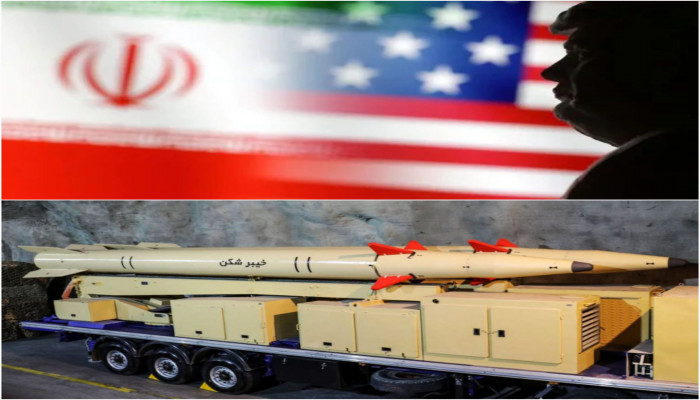US expands sanctions on Iran’s UAV and Missile Programs amid renewed 'maximum pressure' strategy
- In Reports
- 05:35 PM, Apr 03, 2025
- Myind Staff
On Tuesday (local time), the United States imposed sanctions on six companies and two individuals based in Iran, the UAE and China. These entities were found to be involved in acquiring critical components for organisations linked to Iran’s UAV and ballistic missile programs. In a statement, the US State Department said that “today's action is a part of President Trump's maximum pressure campaign on the Iranian regime to disrupt efforts by the US-sanctioned Iran-based Qods Aviation Industries to procure equipment for Iran's military-industrial complex and UAV program.”
"The United States will use all available means to expose and disrupt Iran's growing UAV and missile development programs and weapons proliferation, which destabilise the Middle East and beyond," the statement continued.
The U.S. State Department reaffirmed its commitment to countering Iran’s use of third-party countries to disguise its procurement and transfer of sensitive technology.
According to the department, Iran utilises this technology and profits from arms sales to strengthen its military-industrial base, producing missiles and drones that are used in attacks against other nations. These weapons are also supplied to Russia, terrorist proxy groups in the Middle East, and other entities of concern. The U.S. Treasury Department took action under Executive Order 13382, which targets individuals and organisations involved in the spread of weapons of mass destruction and their supporters.
On Monday, the US imposed visa restrictions on certain Chinese officials in response to China's long-standing restrictions on US access to Tibetan regions. This measure comes in response to China’s long-standing policy of blocking U.S. officials, journalists, and international observers from entering Tibet. In contrast, Chinese officials continue unrestricted access to the United States.
"Today, I am taking steps to impose additional visa restrictions on Chinese officials determined to be substantially involved in the formulation or execution of policies related to access for foreigners to Tibetan Areas, pursuant to the Reciprocal Access to Tibet Act of 2018," Marco Rubio, US Secretary of State expressed in a statement. "For far too long, the Chinese Communist Party (CCP) has refused to afford US diplomats, journalists and other international observers access to the Tibet Autonomous Region (TAR) and other Tibetan areas of China, while China's diplomats and journalists enjoy broad access in the United States. US diplomats are also unable to provide services to US citizens travelling in Tibet," he further said.







Comments